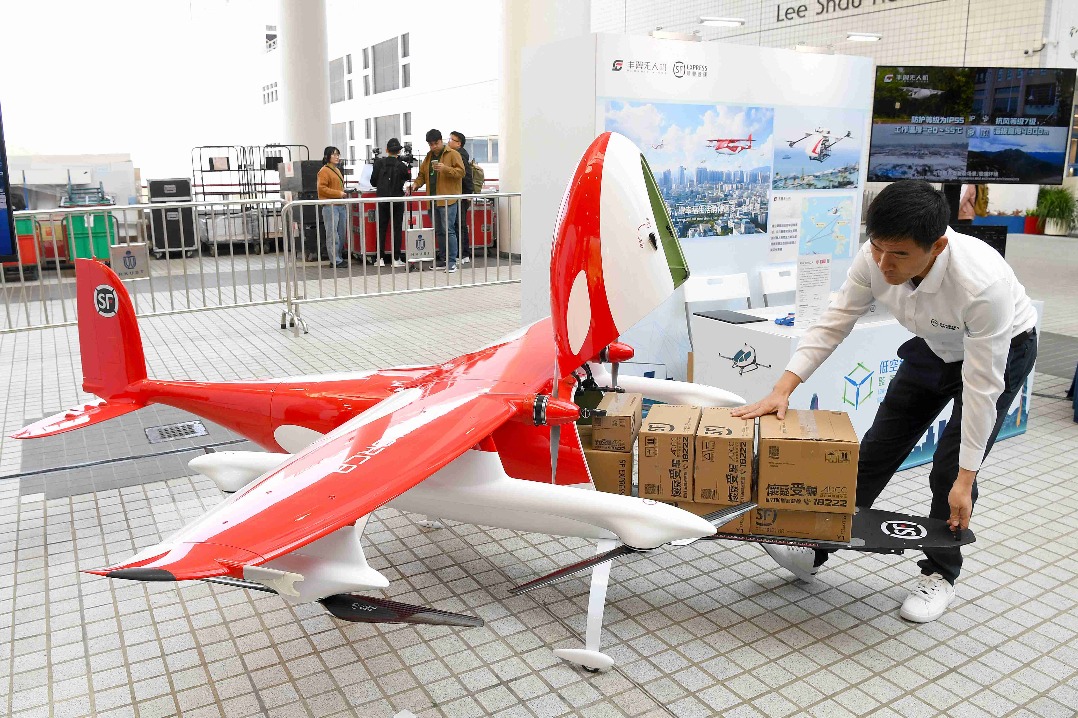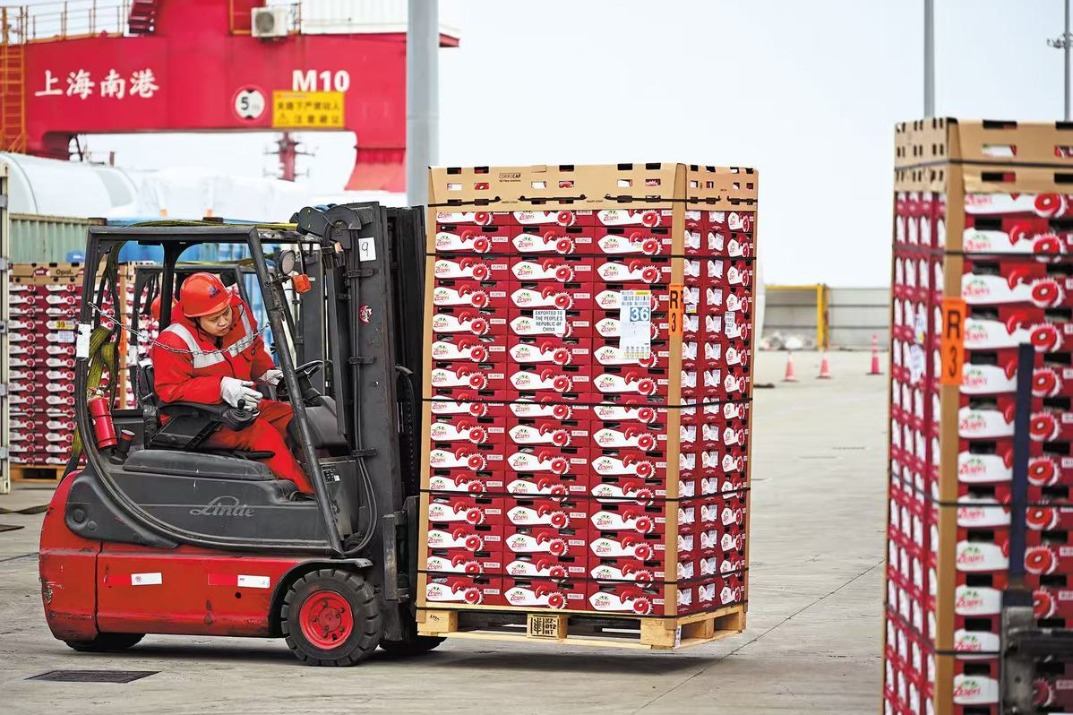Fung to digitalize supply chains in BRI economies


Fung Group, the Hong Kong-based multinational specializing in supply chain management, plans to expand its presence in both the domestic market and economies participating in the Belt and Road Initiative.
Such expansion is necessary to maintain robust growth over the next three years, said a senior executive of Fung Group.
With its business covering trading, logistics, distribution and retail sectors, the company will adopt more digital solutions to upgrade the entire supply chain management system and establish a global smart supply chain to shorten the response cycle.
"Over the past few decades, Asian countries exported consumer goods to the Western markets, but not the other way around. However, two-way trade has deepened of late because Chinese consumers started looking for high-quality products or services from outside the national market," said Stephen Fung, the group's president for the Chinese mainland market.
He said the retail growth rate driven by the Asian market is twice that of others, and the Chinese market has gradually grown into the largest in Asia. The purchasing power of Chinese consumer has also contributed to the global inclusive economic growth and sustainable development.
Since the establishment of Fung Group in Guangzhou of South China's Guangdong province back in 1906, the Chinese mainland market has always been a valuable asset to the group's business strategy and development, he said.
Nearly half of Fung Group's global sourcing currently comes from the Chinese mainland. With its plan of expanding the consumer market, the firm predicted that its revenue and profit from the Chinese mainland will keep growing notably over the next three years.
Supported by over 42,000 employees in more than 40 countries and regions, the company also believes that the Guangdong-Hong Kong-Macao Greater Bay Area will serve as the basis for economic development that "provides ample space for the company to grow".
Fung, who previously studied and worked in the United States and Japan, stressed that the emerging digital technologies are driving innovation and creating new opportunities, which companies in supply chain management cannot fully optimize if they work alone.
So, Fung Group and JD Group signed an agreement to boost mutual cooperation in March. The company launched the first AI-enabled checkout system for retailers in Hong Kong. It uses image recognition technology and advanced AI algorithms. The checkout counter can identify up to five products in one second with over 97 percent accuracy, which can reduce the overall checkout time by 30 percent.
It also formed a partnership with Alibaba Group Holding Ltd in 2018. The two parties started to leverage their online and offline channels to initiate new opportunities that can help more lifestyle brands enter the Chinese mainland market.
With the support of its partners, the company has digitalized all key fields in supply chain, including product development, material costing, design, sampling, production and delivery to further compete with other established competitors in the market, Fung said.
"Take 3D design. It shortens the time from sampling to application (from hours to weeks) as well as cuts unnecessary sampling and traffic, which will increase the overall speed, improve the supply chain efficiency, and help its partners gain additional profits," he said.
Apart from investing more on digitalization, the company established the group's head office for the Chinese mainland in Shanghai this year, to forge a closer bond with local exchanges, as well as create a better connection with local business partners, in order to integrate resources and diversify sales channels.
Fung said the group will further exploit potential in markets participating in the Belt and Road Initiative and build platforms for many Chinese companies seeking to go global. This should help them to boost exports, and support small and medium-sized enterprises to grow in global markets.
Fung Group plans to bring a variety of products to Belt and Road economies, and introduce the right products to meet the growing needs of local consumers.
Yu Jianlong, secretary-general of the Beijing-based China Chamber of International Commerce, said the tangible development brought about by the BRI will offer Chinese companies more opportunities to enhance their earning ability in global markets, given the massive population base, growing demand for infrastructure, and movement of resources in the BRI footprint.
"From a long-term perspective, population determines economic growth. Even though it will take a certain amount of time, the number of consumers will determine the potential of economic development in both developed and developing economies," he said.
Yu said China's consumption upgrade is not only creating new demand in China but facilitating rapid development of e-commerce, transportation and logistics sectors in many BRI markets. This has also led to profound restructuring of supply chains of daily necessities, industrial goods, foods and beverages.




































